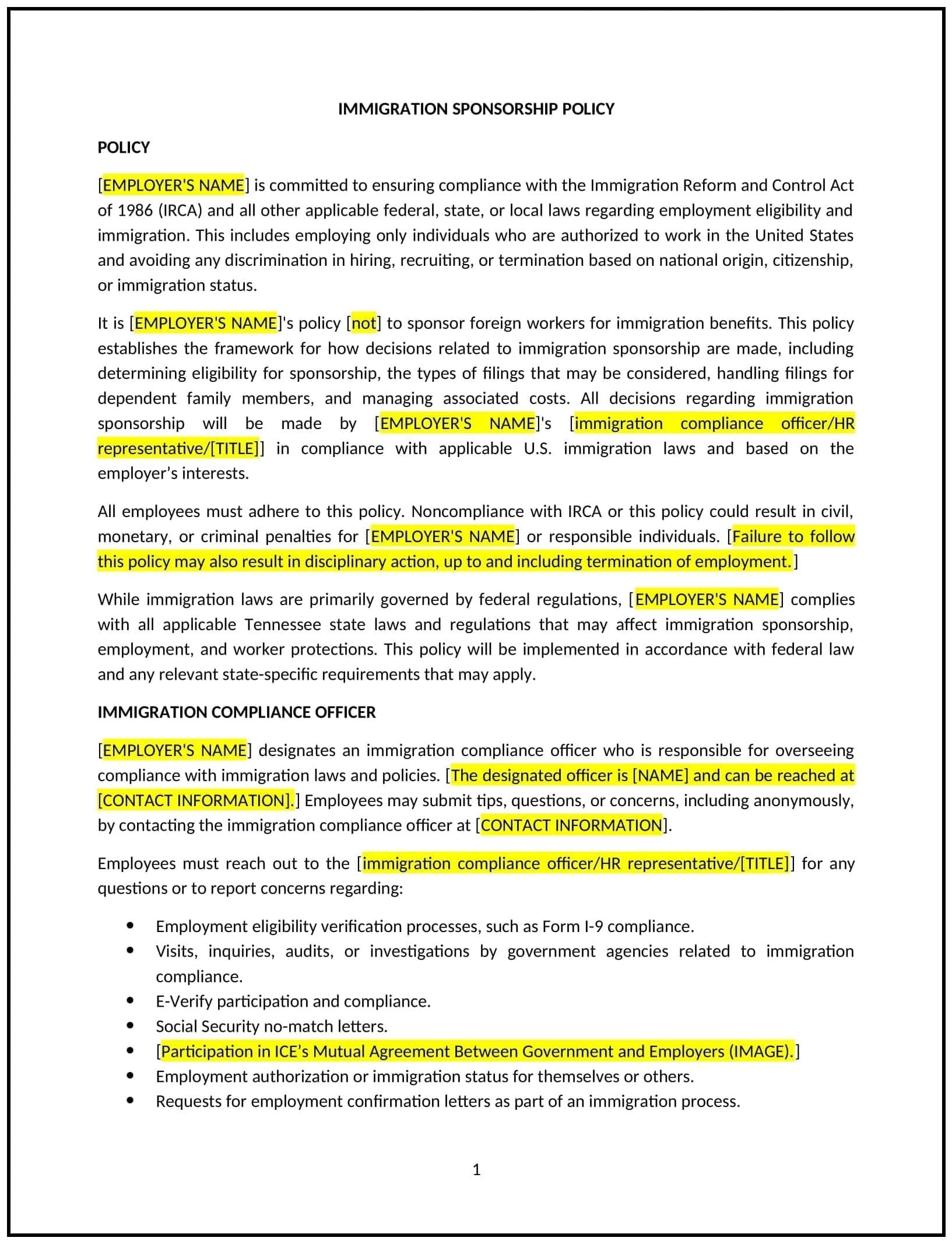Immigration sponsorship policy (Tennessee): Free template
Got contracts to review? While you're here for policies, let Cobrief make contract review effortless—start your free review now.

Customize this template for free
Immigration sponsorship policy (Tennessee)
This immigration sponsorship policy is designed to help Tennessee businesses establish guidelines for sponsoring foreign workers for employment-based visas. It outlines procedures for identifying eligible candidates, filing visa applications, and supporting sponsored employees.
By adopting this policy, businesses can attract global talent, fill skill gaps, and align with U.S. immigration laws.
How to use this immigration sponsorship policy (Tennessee)
- Define sponsorship criteria: Specify the types of visas the business will sponsor, such as H-1B or L-1 visas.
- Set eligibility requirements: Outline the qualifications and skills required for sponsored positions.
- Address application procedures: Provide steps for filing visa applications and working with immigration attorneys.
- Support sponsored employees: Explain how the business will assist employees with relocation, housing, and cultural integration.
- Train HR staff: Educate HR teams on immigration laws and sponsorship processes.
- Review and update: Assess the policy annually to ensure it aligns with evolving business needs and immigration regulations.
Benefits of using this immigration sponsorship policy (Tennessee)
This policy offers several advantages for Tennessee businesses:
- Attracts global talent: Expands the talent pool by recruiting skilled workers from around the world.
- Fills skill gaps: Addresses shortages in specialized fields by hiring qualified foreign workers.
- Enhances diversity: Brings diverse perspectives and experiences to the workplace.
- Aligns with immigration laws: Ensures compliance with U.S. visa and sponsorship regulations.
- Builds trust: Demonstrates a commitment to supporting international employees.
Tips for using this immigration sponsorship policy (Tennessee)
- Communicate the policy: Share the policy with HR teams and include it in the employee handbook.
- Provide training: Educate HR staff on immigration laws and sponsorship processes.
- Monitor compliance: Regularly review sponsorship applications and employee support measures.
- Address issues promptly: Take corrective action if visa applications are delayed or mishandled.
- Update regularly: Assess the policy annually to ensure it aligns with evolving immigration regulations.